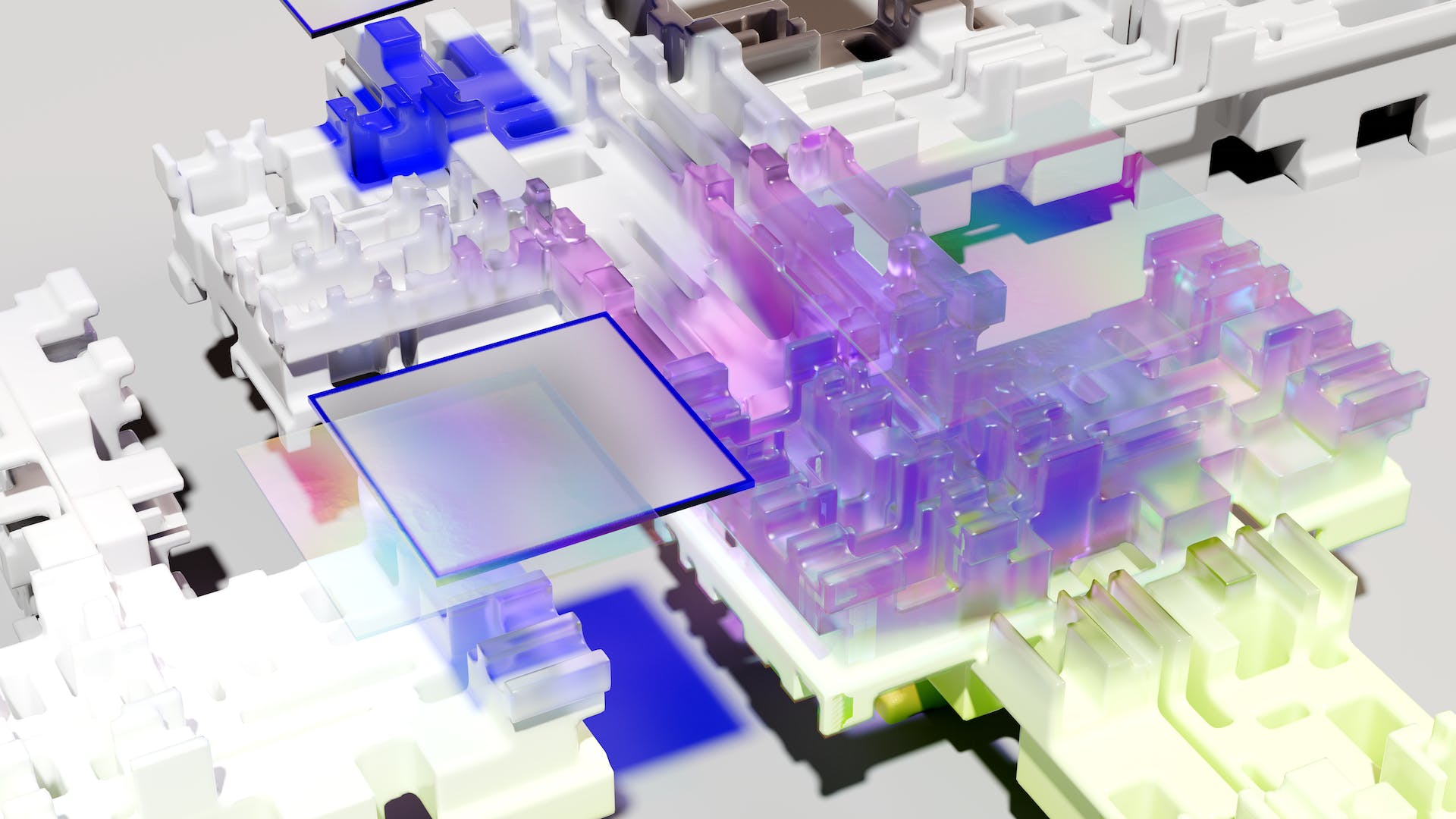In a groundbreaking move, Intel has recently announced a suite of new computer chips, signaling its intent to claim a substantial share of the booming artificial intelligence (AI) hardware market. Among these, the Gaudi3 chip, designed for generative AI software, stands out as a direct competitor to Nvidia’s H100 and AMD’s upcoming MI300X. This article delves into the key aspects of Intel’s latest offerings, exploring the potential impact on the AI landscape and the company’s strategy to challenge industry leaders.
Gaudi3: Intel’s Answer to Nvidia and AMD Dominance
Intel’s Gaudi3 is set to launch next year, marking a significant step in the company’s pursuit of a larger stake in the AI hardware market. Developed to compete directly with Nvidia’s H100 and AMD’s MI300X, Gaudi3 aims to attract AI companies away from Nvidia’s predominant position in the market, where GPUs power major AI models like OpenAI’s ChatGPT. While details about Gaudi3 are yet to be fully revealed, its announcement has already caused a stir in the tech industry.
Gaudi3 is the culmination of Intel’s efforts initiated in 2019 when it acquired chip developer Habana Labs. Intel has been actively working on the Gaudi line, emphasizing its commitment to the evolving landscape of generative AI. The move is strategic, given the surge in interest and demand for AI applications, and positions Intel as a key player in shaping the future of AI hardware.
AI PC: The Star of 2024
At the launch event in New York, Intel CEO Pat Gelsinger expressed confidence in the potential of AI in personal computing. Gelsinger highlighted the significance of generative AI and boldly stated, “We think the AI PC will be the star of the show for the upcoming year.” This statement underscores Intel’s belief in the transformative power of AI in everyday computing scenarios.
To complement this vision, Intel introduced the Core Ultra processors, specifically designed for Windows laptops and PCs. These processors incorporate a specialized AI component known as a Neural Processing Unit (NPU). The inclusion of an NPU enables these chips to execute AI programs more efficiently, aligning with the growing trend among processor manufacturers to cater to the rising demand for AI-centric functionalities.
Core Ultra: Powering the Next Wave of Computing
The Core Ultra chips, built using Intel’s 7-nanometer process, represent a leap forward in power efficiency compared to their predecessors. While not intended to match the computational prowess required for large-scale AI models like ChatGPT without internet connectivity, these chips excel in handling smaller AI tasks. Notably, Zoom utilizes Intel’s Core Ultra processors to seamlessly run background-blurring features, showcasing their practical application in everyday scenarios.
One of the key advantages of the 7-nanometer chips is their ability to enhance gaming capabilities. Intel’s strategic focus on making gaming experiences more immersive is evident, with the Core Ultra lineup boasting graphics enhancements that can accelerate programs like Adobe Premier by over 40%. These chips have already been integrated into laptops available in stores, marking a swift transition from announcement to market availability.
5th-Gen Xeon: Empowering AI in Large-Scale Deployments
In tandem with the consumer-oriented Core Ultra lineup, Intel introduced its fifth-generation Xeon server chips, targeting large organizations and cloud companies. Historically, Intel’s Xeon processors have been integral components in systems utilized for training and deploying generative AI, often paired with Nvidia GPUs. While specific pricing details remain undisclosed, these processors are known for their robust performance, and their predecessors commanded prices in the thousands of dollars.
The latest Xeon processor, according to Intel, is particularly adept at inferencing—the process of deploying an AI model—where power efficiency is crucial. This positions the 5th-Gen Xeon as a powerhouse for organizations engaged in AI applications, promising enhanced performance and efficiency in large-scale deployments.
Conclusion: Intel’s Strategic Leap into the AI Future
Intel’s recent announcements mark a strategic leap into the evolving landscape of artificial intelligence. With Gaudi3 poised to compete directly with Nvidia and AMD’s AI chips, and the Core Ultra and 5th-Gen Xeon chips catering to personal computing and large-scale deployments, respectively, Intel is positioning itself as a formidable force in the AI hardware market. As the demand for AI capabilities continues to surge, Intel’s diverse chip offerings showcase a commitment to meeting the evolving needs of both individual users and enterprises.
FAQs — Intel’s AI Revolution: Gaudi3, Core Ultra, and 5th-Gen Xeon Chips Set to Redefine Computing in 2024:
- Q: What is Gaudi3, and how does it compete with Nvidia and AMD chips?
- A: Gaudi3 is Intel’s latest artificial intelligence chip designed for generative AI software. It competes with Nvidia’s H100 and AMD’s MI300X, offering a robust alternative for companies working on AI applications.
- Q: Why is Intel emphasizing generative AI, and what role does Gaudi3 play in this trend?
- A: Generative AI, particularly prominent in 2023, has caught Intel’s attention. Gaudi3 is specifically tailored to excel in generative AI applications, aligning with Intel’s strategic focus on the evolving landscape of artificial intelligence.
- Q: How does the Core Ultra processor contribute to the AI landscape, and what makes it suitable for Windows laptops and PCs?
- A: The Core Ultra processor incorporates a Neural Processing Unit (NPU) for enhanced AI performance. It is designed for Windows laptops and PCs, bringing AI capabilities to personal computing scenarios with a focus on power efficiency.
- Q: Can Core Ultra chips handle large-scale AI models like ChatGPT, or are they more suitable for smaller tasks?
- A: While not intended for handling massive AI models without internet connectivity, Core Ultra chips excel at managing smaller AI tasks. Zoom, for example, utilizes these chips for features like background blurring.
- Q: How does Intel’s 7-nanometer process in Core Ultra chips contribute to their efficiency, and what advantages does it bring over earlier chips?
- A: The 7-nanometer process enhances power efficiency in Core Ultra chips. Compared to earlier chips, this technology allows for more efficient AI processing, making them a significant leap forward in performance.
- Q: What role do 5th-Gen Xeon server chips play in AI, and how are they integrated into large-scale deployments?
- A: 5th-Gen Xeon server chips are tailored for large organizations and cloud companies. Paired with Nvidia GPUs, these processors are often part of systems used for training and deploying generative AI, offering robust performance in large-scale deployments.
- Q: What is inferencing in the context of AI, and why is the 5th-Gen Xeon processor particularly well-suited for this task?
- A: Inferencing is the process of deploying an AI model, and the 5th-Gen Xeon processor excels in this area due to its efficiency. It consumes less power compared to the training process, making it ideal for applications where energy consumption is a critical factor.
- Q: How does Intel’s strategy with Gaudi3 and Core Ultra chips differ from competitors like Nvidia and AMD?
- A: Intel’s strategy involves providing a comprehensive range of chips for both generative AI and personal computing, aiming to compete directly with Nvidia and AMD. This approach positions Intel as a versatile player in the AI hardware market.
- Q: What impact does Intel’s entry into the AI hardware market have on its overall standing in the tech industry?
- A: Intel’s recent announcements signify a strategic leap into the AI hardware market, showcasing the company’s commitment to shaping the future of artificial intelligence. This move has the potential to enhance Intel’s standing as a key player in the tech industry.
- Q: How soon can we expect Gaudi3 to be available, and what industries or applications might benefit the most from these advancements in AI hardware?
- A: Gaudi3 is set to launch next year. Industries relying heavily on AI applications, such as healthcare, finance, and technology, are likely to benefit the most from these advancements in AI hardware, given the chip’s focus on generative AI.
Tags:
- Intel AI
- Gaudi3 chip
- Core Ultra processor
- 5th-Gen Xeon
- Artificial intelligence hardware
- Generative AI
- Neural Processing Unit (NPU)
- AI applications
- Nvidia competition
- AMD rivalry










